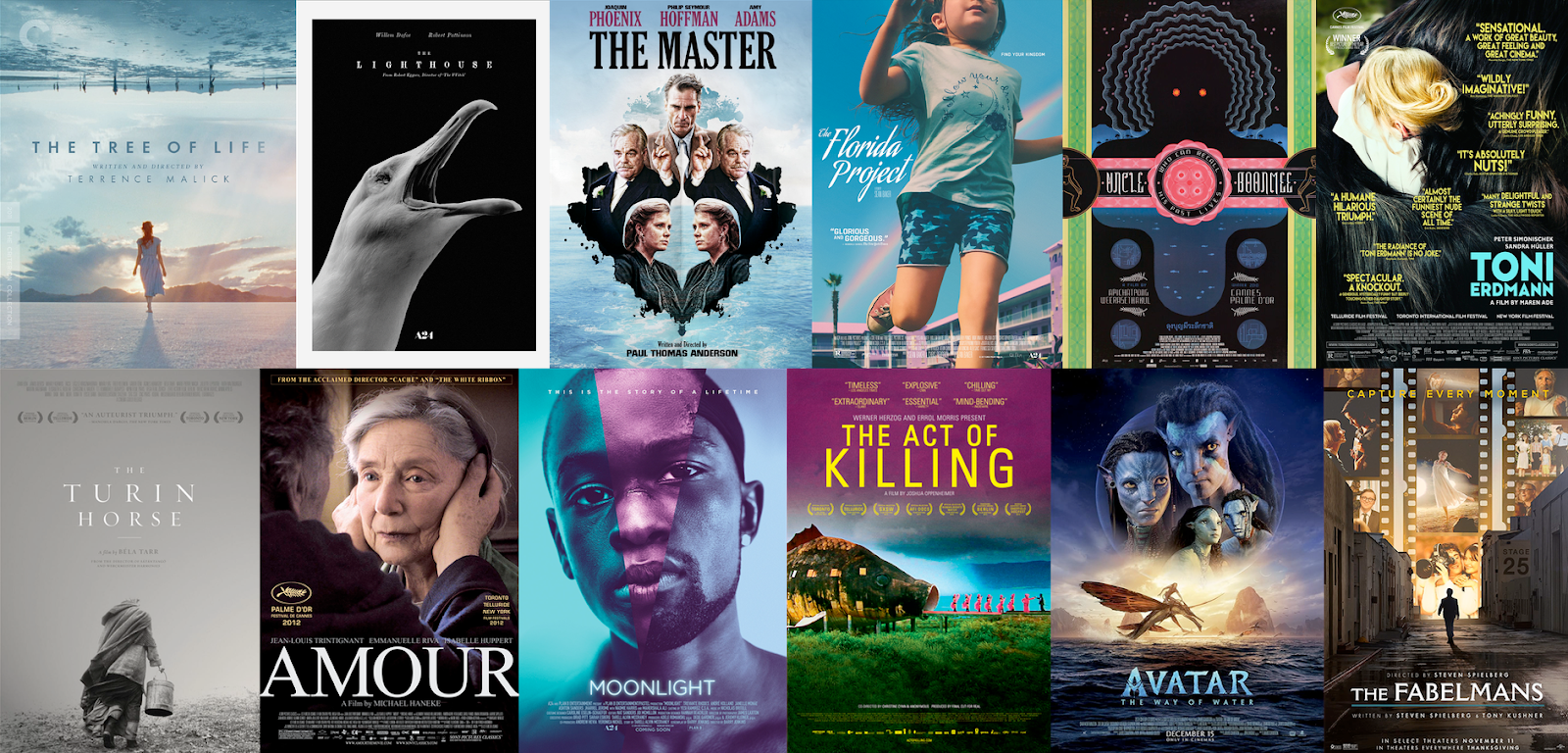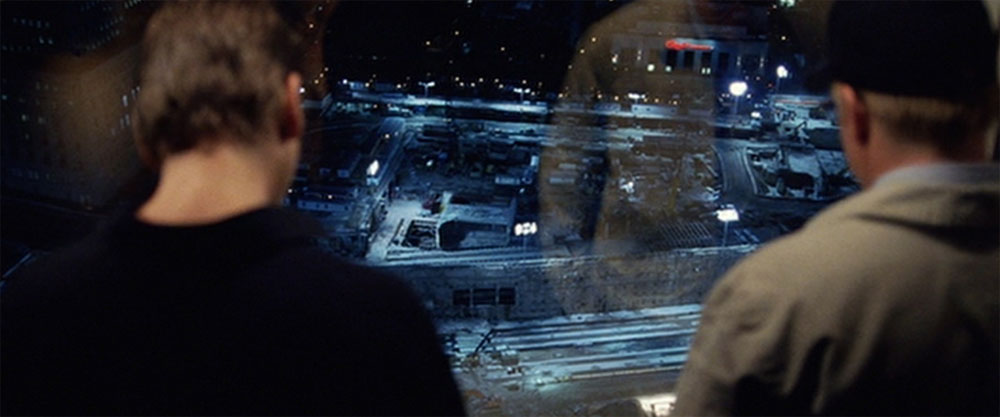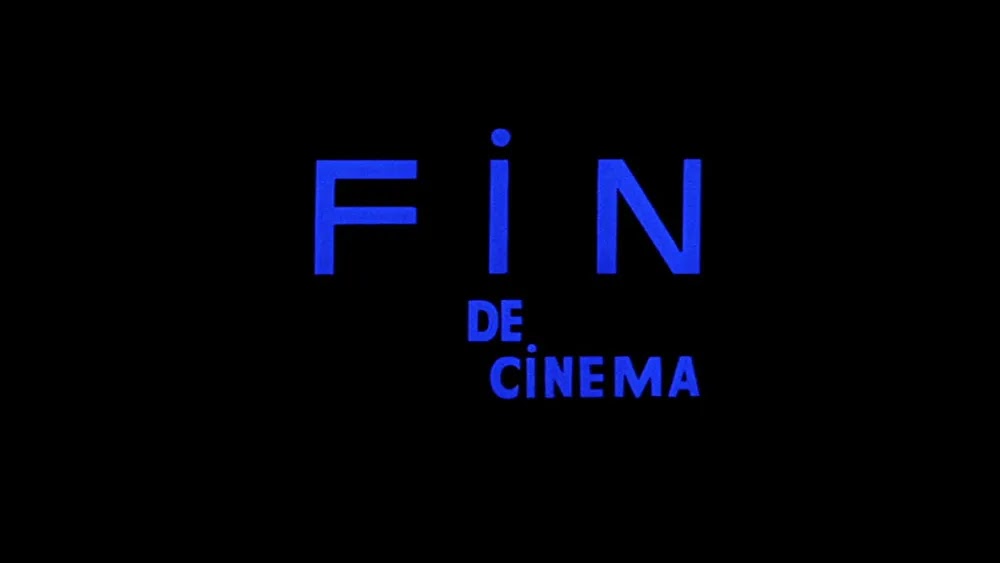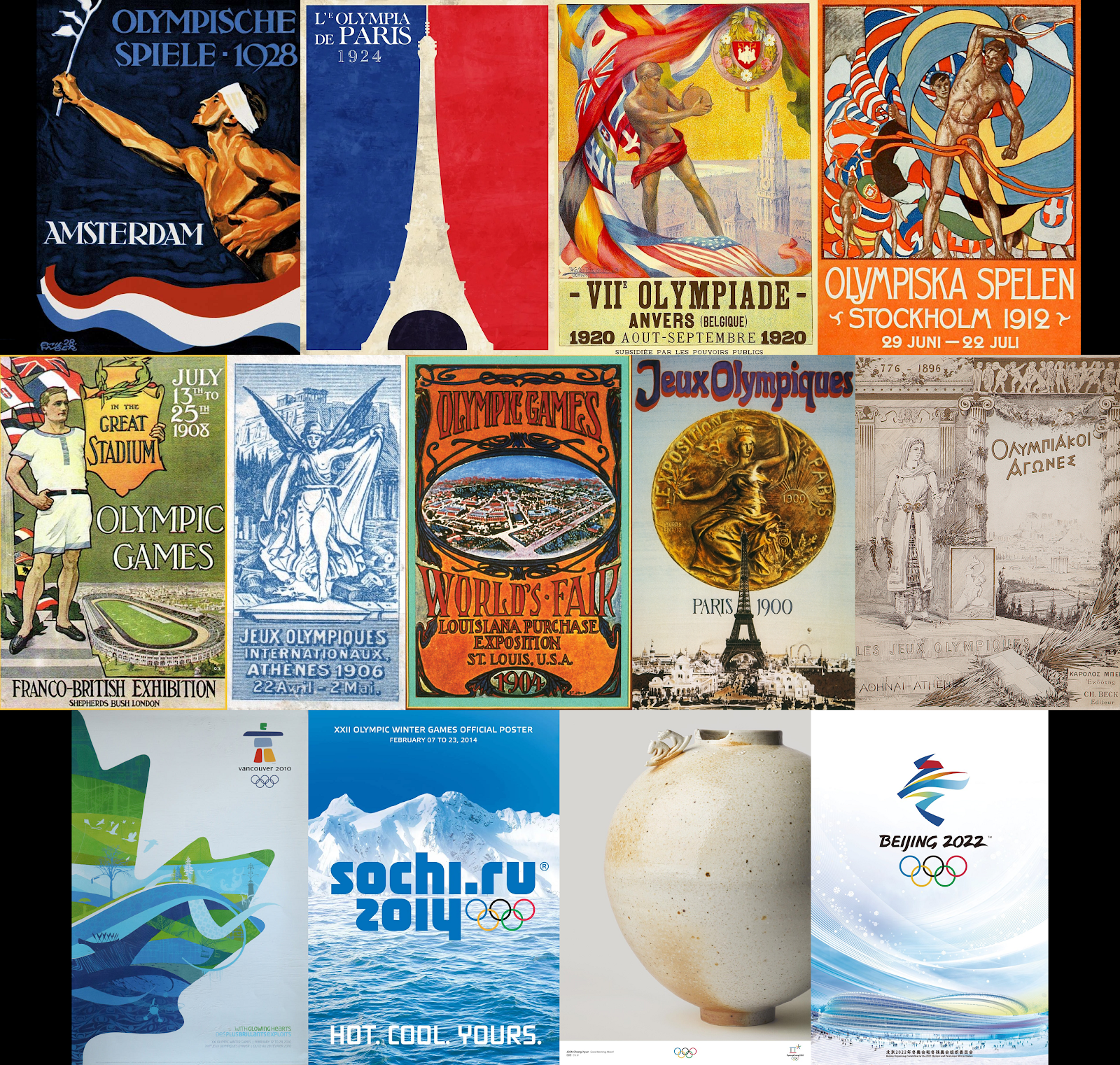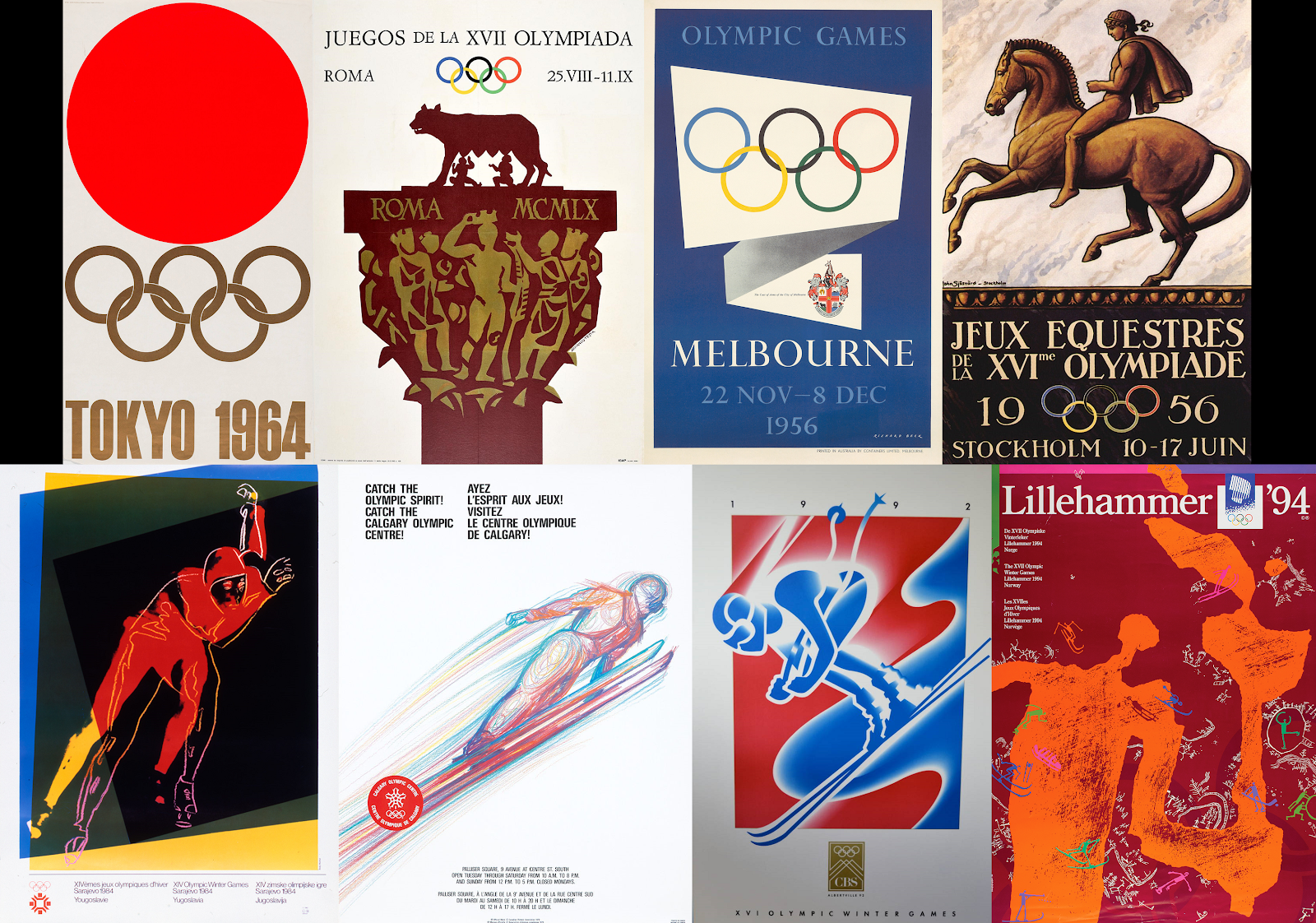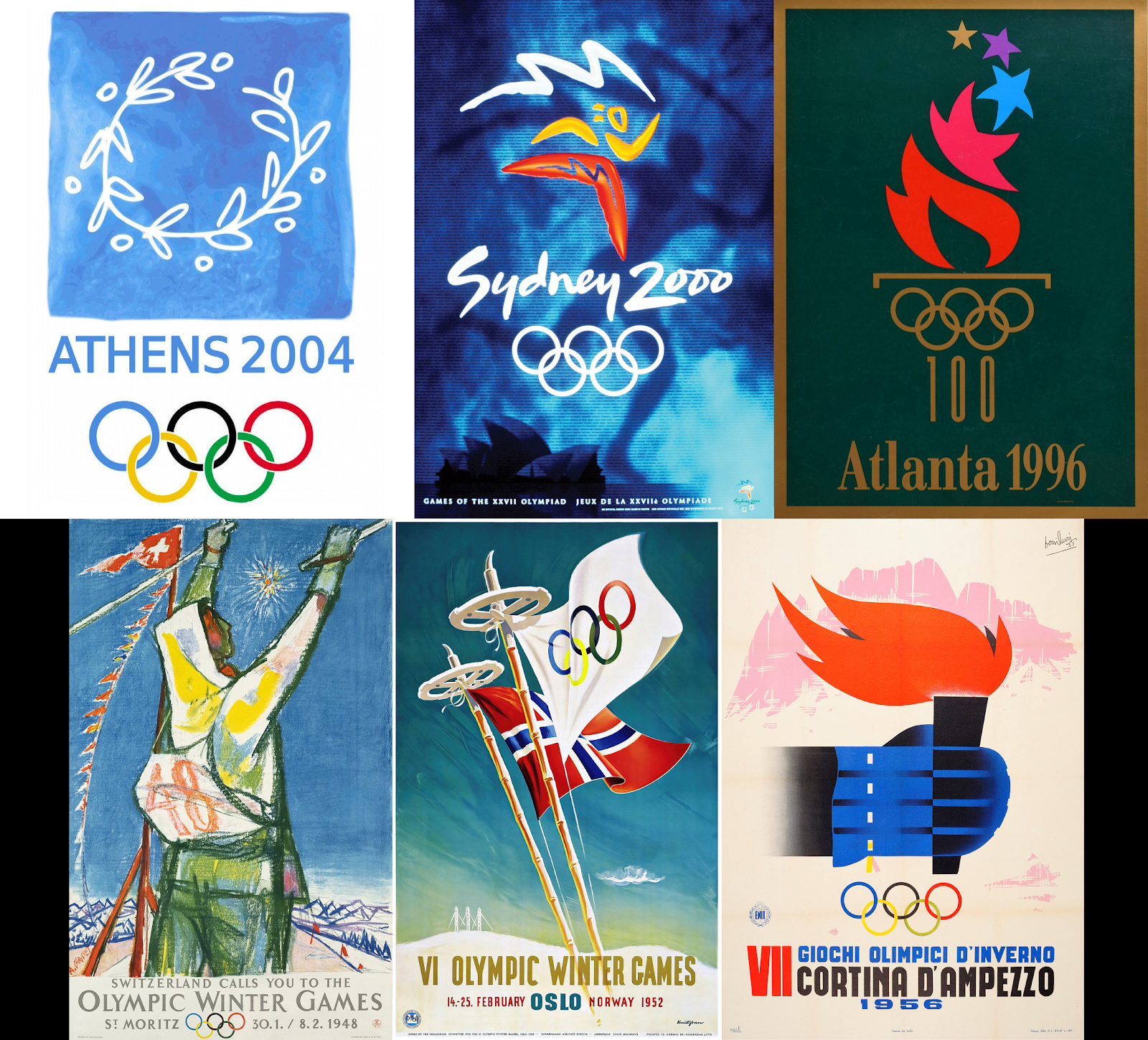For most of this year, I've been promising a grand finale to the patron podcast that began in January 2018. This episode also doubles as a conclusion to the decades series launched in August 2023, in which I initially covered films from the 1980s and then stretched out in either direction, finally reaching the 2010s and 1950s in Episode 99. The bulk of the movies discussed in those earlier episodes were given the capsule treatment (less than ten minutes, often less than five, dwelling on just a few aspects); this time, every single topic is a "film in focus" with my review running at least fifteen minutes, in many cases in half hour, and in a few even longer than that. These dozen films wrap up the teens decade and tiptoe into the twenties with two relatively new releases - Avatar: The Way of Water and The Fablemans - which I saw in theaters earlier this year, and which pair up nicely given their complementary contrasts. The line-up also includes a guest discussion with Riley MacDonald on Robert Eggers' crusty psychological horror flick The Lighthouse and one last "Twin Peaks Cinema" analysis, comparing the David Lynch/Mark Frost series, especially but not exclusively the third season, to The Tree of Life, Terrence Malick's epic meditation setting a fifties Texas childhood against the backdrop of the creation of the universe. While a couple selections are fairly random (The Master and The Florida Project), six of the other titles were specifically selected because they are the most acclaimed films from the decade that I'd never seen before: Uncle Boonmee Who Can Recall His Past Lives, Toni Erdmann, The Turin Horse, Amour, Moonlight, and The Act of Killing.
All of those reflections are packed into a single massive upload (my longest single podcast file) that was finally published a few days ago as a belated October $1/month tier reward; however, I'm cross-posting the whole Episode 100 separately from my monthly round-up because it actually spans several months. I released a set of public archival readings earlier in the year (extending the decades theme in the other direction by sharing pieces I'd previously written about forties, thirties, and silent cinema), and a couple months ago I published the opening of the podcast, an intro with some updates and a long gathering of listener (and viewer and reader) feedback. Though I intended to end that section before Episode 100, I received so many interesting responses in the spring and summer that I wanted to give it one last go. Altogether, the entire package runs over eight and a half hours. If you've not yet become a patron, keep in mind that by joining you'll be able to access not only this whole episode but an archive spanning half a decade including much material that was never made public. The monthly round-up will be presented in a few days but for now, the focus is on this farewell to one of my longest running endeavors...

